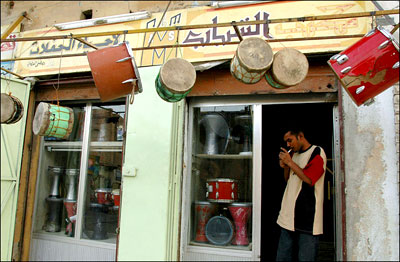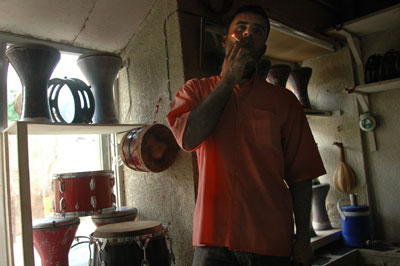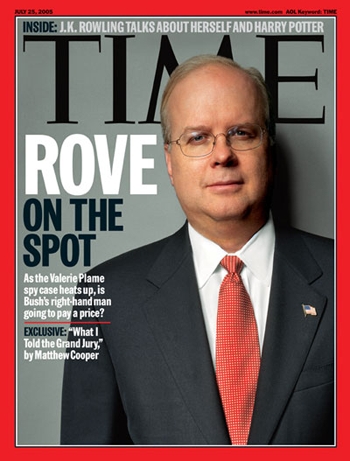Notes
Drummed Out

Although this music store in Basra was there as of two weeks weeks ago, it’s possible it no longer exists.
If you’ve been following the BAG, you know we’ve had the good fortune to have images, correspondence and also discussion participation from Alan Chin. Alan is a prominent photojournalist who has spent the last several months in Iraq. Toward the end of his most recent trip, he was in Basra shooting pictures for the NYT with one of it’s reporters.
Last time I checked, George Bush was still standing by his third (or maybe fourth) rationalization for the Iraq War, which was to bring democracy to the region in the form of a secularly-run Iraqi state. As Alan’s account illustrates, however, this ideal is quickly being drummed out in southern Iraq, as evidenced by the influence of Shiite fundamentalists, and growing ties to Iran.
As a poignant symbol of cultural repression, The NYT article that accompanied this image describes how music stores have been targeted for harassment and attack. In correspondence with the BAG, Alan provides his own details, as well as some background to the photo:
My sense of the growing religious atmosphere in Basra is essentially
that of [the Times reporter]. It is very true that women told us how
they were told to cover up whereas before they did not have to. And
even early on in 2003, liquor stores were forced to close down. Right
now it’s probably impossible to get alcohol in Basra, whereas it’s
relatively easy to do so in Baghdad.
It’s also true that posters and photos of Sistani, Hakim, Khomeni of
Iran, and other prominent Shia figures past and present are on walls
everywhere.
The city is also very dirty (more so than Baghdad) and the
electricity is very erratic, and in general it is a poor place. So the
much-touted British approach, and Shia rule, haven’t done enough in the
way of providing and improving services. But the one success, a
meaningful one, is the far better security. In such a Shia city there
is no "sea" for insurgent "fish" to swim in. So there are no blast
walls and barbed wire, a far less visible police presence than in
Baghdad, and the populace is far more relaxed as they go about their
daily lives.
The caption to this photo stated that the store had just been
bombed. The BAG asked Alan about the motivation for the attack and the
circumstances of his visit:
[The shop owners] believe that it is the Moktada al-Sadr extremists
who have been attacking them. The idea that music is un-Islamic, is
comparable to the Taliban who had similar ideas about music, dancing,
and other such pleasures of the senses. Also they told us there were 10
music stores before but only 3 now. So the store might close down if
they are attacked again.
The part of the store that was bombed is actually next door, to the
right. There wasn’t much to photograph there because the guys had
cleaned it out and had started re-plastering the walls. So this is
after the bombing but not the part that was damaged. We didn’t stay
there long because our driver spotted some sketchy guys down the street
who started making cell-phone calls as soon as they saw us, and the
other people on the street were nervous and anxious rather than curious
as they usually would be in a safer neighborhood.
I think [the guy in the doorway] is one of the musicians. This is just how I found him.

Although, as Alan describes, he was in and out pretty quick,
here is another shot from inside the store. It’s dark because the
power had gone out (which was a customary occurrence).
From a strictly visual standpoint, I find these images quite
evocative. (Of course, if I was a musician in Basra right now, I’d
probably be doing a lot of smoking as well.) The hanging drums,
though, are an affecting symbol. It’s hard to look at a drum without
feeling the urge to strike it or imagining it’s vibration inside your
chest.
As an elemental instrument, the destruction of a drum seems like the greater sacrilegious act.
(image 1: Alan Chin. July 7th, 2005. Basra, Iraq. In nyt.com. image 2: Alan Chin. July 7th, 2005. Basra, Iraq.)


Reactions
Comments Powered by Disqus